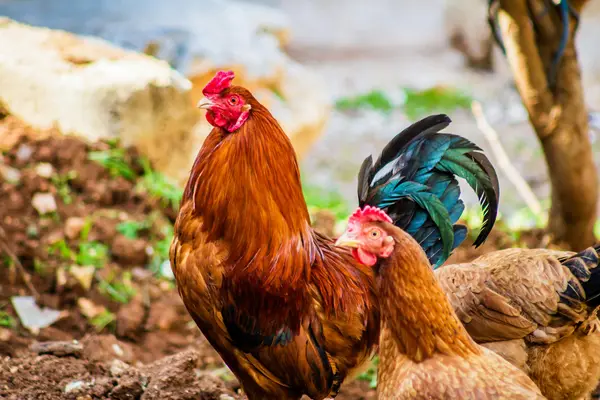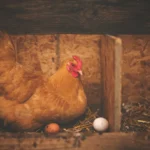Chickens are not just great egg producers—they’re also fun, quirky animals that can brighten up your day with their personalities and curious behavior. Whether you’re raising chickens for fresh eggs, as pets, or both, it’s important to give them proper care to ensure they’re healthy and happy. If you’re new to raising chickens or want to brush up on the essentials, this quick guide will walk you through the basics. Let’s dive into basic health and care for chickens and what you need to know to keep your flock thriving.
1. Provide Adequate Housing and Space
Your chickens need a comfortable and safe environment to stay healthy. Proper housing plays a huge role in their well-being.

Give them space to roam
Each chicken requires about 4 square feet inside the coop and at least 10 square feet of outdoor space in the run. Chickens love to scratch, peck, and explore, so the more room they have, the better they’ll feel.
Secure their coop
Chickens are vulnerable to predators like raccoons, hawks, and foxes, so make sure their coop is predator-proof. Use sturdy materials, close any gaps, and install a locking door. Adding wire mesh around the perimeter will prevent predators from digging under.
Provide roosts and nesting boxes
Chickens need places to sleep and lay their eggs. Install roosts inside the coop for perching and ensure there’s one nesting box for every 3-4 hens. Keep the nesting boxes cozy with fresh straw or shavings to encourage laying.
When I built my first chicken coop, I underestimated the importance of security. After a close encounter with a raccoon, I learned that extra measures like reinforced wire make all the difference in keeping my chickens safe.
2. Feed Them a Balanced Diet
Feeding your chickens the right diet is one of the most important aspects of care. A well-fed chicken is not only healthier but also produces better-quality eggs. We need to learn this for basic health and care for chickens.
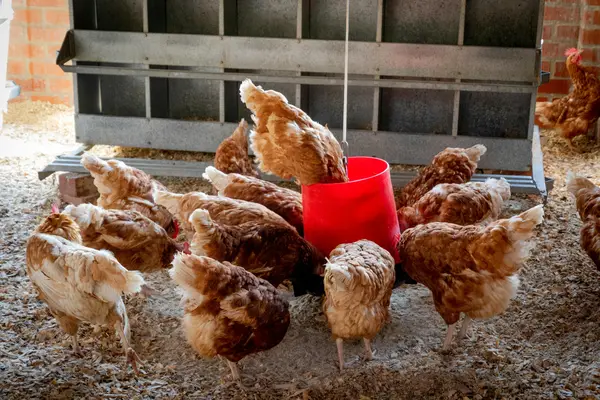
Start with commercial feed
A high-quality layer feed designed for chickens provides all the nutrients, vitamins, and minerals your flock needs to stay healthy and produce eggs. Be sure to choose feed suited to their age and purpose—chicks need different feed than adult laying hens.
Supplement with fresh foods
Chickens love variety in their diet. They enjoy fresh veggies and fruits like lettuce, cucumbers, and berries, as well as grains like oats. Just make sure to avoid foods toxic to chickens, such as raw potatoes, avocado, and chocolate.
Offer grit and oyster shell
Chickens need grit to help them digest food since they don’t have teeth. Grit consists of tiny stones that grind food in their gizzard. Oyster shell is another key supplement for laying hens, providing extra calcium to ensure strong eggshells.
I’ve noticed that when I mix fresh greens and grains into my chickens’ diet, they’re much more energetic, and their eggs have noticeably stronger shells. A varied diet keeps them happy and healthy.
3. Provide Fresh Water and Clean Living Conditions
Chickens need constant access to clean water, and keeping their living environment clean is crucial for their health. These two factors go hand-in-hand for maintaining a healthy flock.
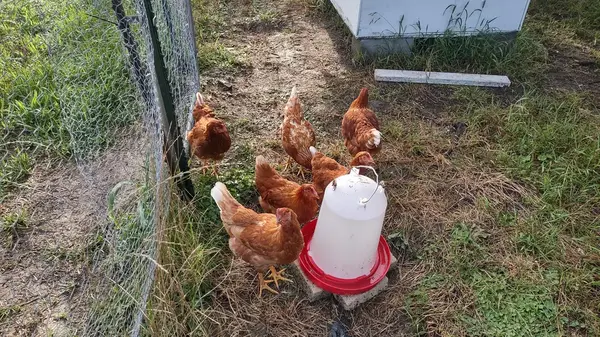
Ensure access to fresh water
Chickens need fresh, clean water daily, especially in hot weather when dehydration is a risk. Make sure their waterer is regularly cleaned and deep enough for them to easily drink from without contaminating it.
Prevent freezing in winter
In cold weather, make sure your chickens’ water doesn’t freeze. Heated waterers can help or simply refilling their water several times a day can prevent dehydration.
Keep the coop clean
Dirty coops can lead to diseases and parasites. Clean out old bedding weekly and do a deeper clean of the entire coop once a month. Replace soiled bedding with fresh straw or wood shavings to keep things hygienic.
Manage pests and parasites
Chickens are susceptible to mites, lice, and flies, so regular health checks are key. You can prevent pest infestations by keeping their coop dry and clean. Offer them a dust bath, where they can naturally clean their feathers and rid themselves of parasites.
Keeping the coop clean and providing fresh water not only keeps your chickens healthier but also makes caring for them much more pleasant. After regular cleaning, I found that my chickens were less prone to infections and pests.
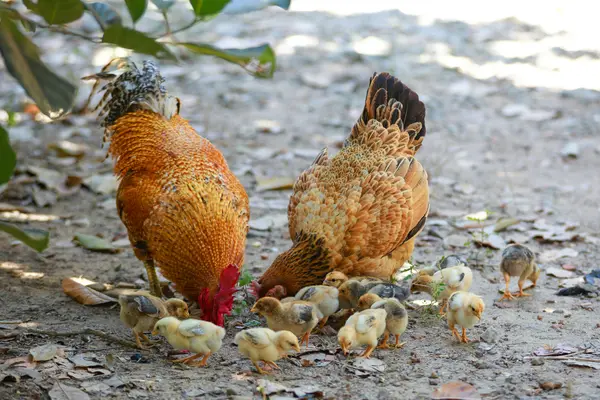
4. Monitor Their Health Regularly
Keeping a close eye on your chickens’ health is essential. Regular health checks can help you catch potential issues early before they become serious problems. This is important for basic health and care for chickens.
Check for signs of illness
Healthy chickens are active, alert, and have bright, clean feathers. Watch for any changes in their behavior, droopy posture, or dull plumage. Respiratory symptoms like coughing or nasal discharge are red flags that require attention.
Inspect their feet and legs
Chickens can develop conditions like bumblefoot, an infection of the foot pads caused by injury or unsanitary conditions. Regularly check their feet for swelling, sores, or any signs of infection.
Monitor egg production
Sudden changes in egg production or poor-quality eggs could indicate health issues. If your hens stop laying or produce thin or oddly shaped eggs, it might be time to investigate.
One of my hens started showing signs of lethargy and stopped laying. A quick health check revealed she was dealing with mites, and with prompt treatment, she recovered quickly. Early detection really makes a difference.
5. Encourage Social Interaction and Enrichment
Chickens are social animals that need interaction, both with their flockmates and with you. Keeping them engaged and entertained is crucial for their mental well-being.
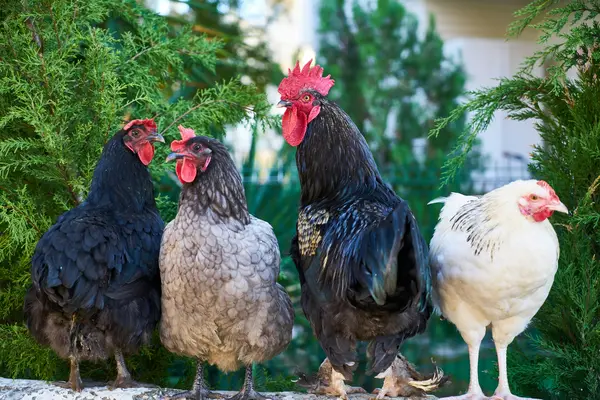
Keep them in a flock
Chickens don’t like being alone. They’re happiest when they have at least two or three companions. A single chicken will become lonely and stressed, so it’s always best to have a small flock.
Provide enrichment activities
Chickens love foraging and exploring. You can encourage natural behaviors by scattering food or treats in the yard for them to find or hanging vegetables like cabbage for them to peck at. Simple toys, such as mirrors or balls, can also provide entertainment.
Spend time with your flock
Chickens can recognize their caregivers and enjoy attention. Spend time with them daily, whether it’s feeding them treats or simply sitting near them while they roam. This interaction helps them bond with you and reduces stress.
I’ve found that my chickens are more relaxed and friendly when I spend time with them each day. Plus, it’s fun to watch their personalities come out.
6. Prepare for Seasonal Changes
Chickens are fairly adaptable to different climates, but you’ll need to make adjustments to keep them comfortable in both hot summers and cold winters. This preparation is important for basic health and care for chickens.
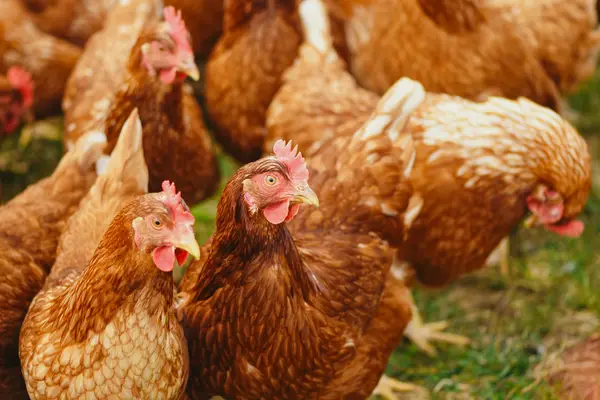
Provide shade and cool water in summer
Chickens are prone to overheating, so it’s essential to give them plenty of shade during the hot months. Make sure they always have fresh, cool water and consider offering them frozen treats like watermelon or ice cubes.
Winterize the coop for cold months
Chickens are cold-hardy, but they still need a dry, draft-free coop in winter. Add extra bedding like straw to help insulate the coop, and make sure their water doesn’t freeze. Also, offer higher-energy feed to help them maintain body heat.
In both summer and winter, I’ve found that a few simple adjustments go a long way in keeping my chickens comfortable and healthy year-round.
At the End
Raising chickens is a rewarding experience that gives you fresh eggs, companionship, and a deeper connection to nature. By following these simple steps, you can ensure your chickens are happy, healthy, and thriving. From providing proper housing and a nutritious diet to monitoring their health and giving them social interaction, taking care of chickens is both fun and fulfilling.



